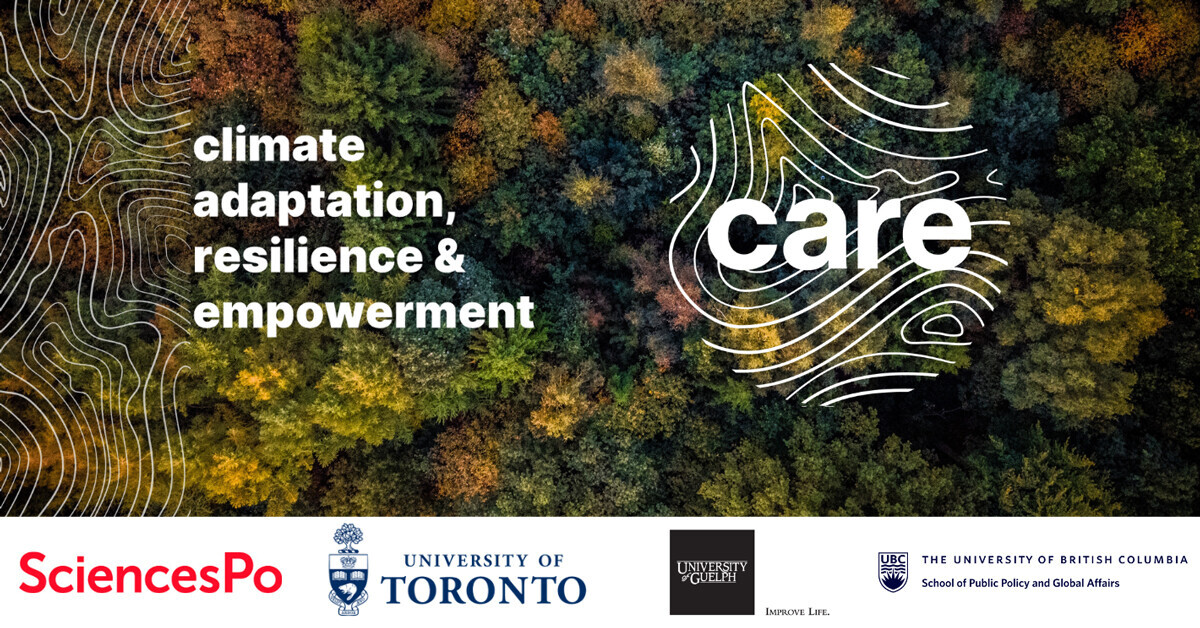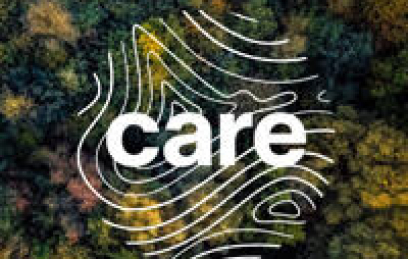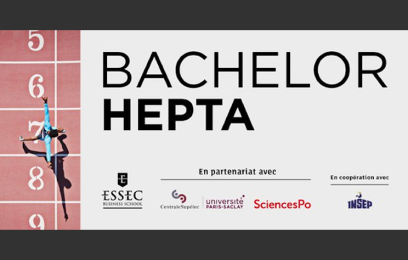Paris, 7 May 2024 - Sciences Po, the University of Toronto, the University of British Columbia and the University of Guelph announce the launch of an innovative partnership: the Climate Adaptation, Resilience and Empowerment (or CARE) Program. Their common goal is to shape a new generation of global climate leaders and citizens by providing them with the knowledge, skills and experience to generate hands-on solutions to address the climate crisis and the challenges of environmental degradation. Initially devised by four French and Canadian universities, the CARE Program is intended to expand to other higher education partners around the world. The ambition is to reach over 2000 students within 5 years.
The triple planetary crisis of climate change, biodiversity loss and pollution are the greatest challenges the world is facing today, with significant impact on future generations. In the search for solutions, universities have a fundamental role to play by promoting a socially inclusive approach that helps reduce vulnerabilities and better understand and manage climate risks.
The Program will deliver cross-cultural graduate education exchanges on environmental sustainability, addressing climate adaptation, resilience, the international energy transition, biodiversity conservation, and pollution. It will advance education, innovation and public debate for the design and practice of policies that promote sustainable development and respond to the accelerating climate crisis.
The CARE Program includes:
- A multi-campus climate leadership training;
- Interdisciplinary courses run in collaboration between the universities;
- Applied learning, including research projects, both on-campus and in the field;
- Advocacy and communications to maximize impact and to disseminate good practices.
Scholarships will support Master-level studies in related fields while fellowships will enable student and faculty mobility.
For the first year, the CARE scholarship is open to students who join the Paris School of International Affairs of Sciences Po either in the Master in Environmental Policy or the Master in International Energy Transitions. Over the next few years, it will progressively open up to students in other Sciences Po schools and will multiply the links with its Institute for Environmental Transformations. Scholarships are also available to students enrolled in a range of Master programs at the University of Toronto, the University of British Columbia and the University of Guelph.
« Faced with the environmental changes underway, the world needs a new generation of global climate leaders and decision-makers who will actively shape a wide range of disciplines by drawing from scientific understanding and diverse knowledge systems, and by collaborating with local communities and deepening worldwide connections. As Dean of PSIA, I am proud of our involvement in this pioneering collaboration. It is another major expression of Sciences Po's ambition to become the leading European university on climate and sustainability. As a leading institution in the social sciences and humanities faced with the greatest challenge of our modern history, our role has never been more important”, said Arancha Gonzalez, Dean of Paris School of International Affairs, Sciences Po.
Signed for a 5-year period beginning on 1 March 2024, the CARE Program is made possible by a €7.2 million grant from the Foundation David R. Graham, which is involved in promoting cultural exchanges between France and Canada.
About Sciences Po
Since 1872, Sciences Po's mission has been to shape free minds capable of understanding the world, in order to transform it. It places academic excellence and social inclusion at the heart of its values. Its unique academic objectives are defined by a multidisciplinary approach rooted in the humanities and social sciences, a strong international perspective, and the ability to combine fundamental knowledge with professional expertise thanks to its 290 research professors and 4,600 part-time lecturers.
A world-class research university with 11 research centers, Sciences Po takes social responsibility seriously, proposing solutions to major contemporary issues including environmental and digital transformations, changes in public policy, and the fight against inequality and discrimination. The defense of academic freedom – an essential condition for democracy and social progress – is also at the heart of our academic project.
Each year, Sciences Po trains 15,000 students, 50% of whom are international, on seven campuses (Dijon, Le Havre, Menton, Nancy, Paris, Poitiers, Reims) within the Undergraduate College, and in seven schools at Master's level (international affairs, public affairs, law, journalism, management, research, urban planning). 3,500 professionals also receive continued professional training.
Contact press : Romain Becker : media@sciencespo.fr / 01 45 49 50 79



